Chatham County Farm Field Day for NC Farm School
go.ncsu.edu/readext?828978
en Español / em Português
El inglés es el idioma de control de esta página. En la medida en que haya algún conflicto entre la traducción al inglés y la traducción, el inglés prevalece.
Al hacer clic en el enlace de traducción se activa un servicio de traducción gratuito para convertir la página al español. Al igual que con cualquier traducción por Internet, la conversión no es sensible al contexto y puede que no traduzca el texto en su significado original. NC State Extension no garantiza la exactitud del texto traducido. Por favor, tenga en cuenta que algunas aplicaciones y/o servicios pueden no funcionar como se espera cuando se traducen.
Português
Inglês é o idioma de controle desta página. Na medida que haja algum conflito entre o texto original em Inglês e a tradução, o Inglês prevalece.
Ao clicar no link de tradução, um serviço gratuito de tradução será ativado para converter a página para o Português. Como em qualquer tradução pela internet, a conversão não é sensivel ao contexto e pode não ocorrer a tradução para o significado orginal. O serviço de Extensão da Carolina do Norte (NC State Extension) não garante a exatidão do texto traduzido. Por favor, observe que algumas funções ou serviços podem não funcionar como esperado após a tradução.
English
English is the controlling language of this page. To the extent there is any conflict between the English text and the translation, English controls.
Clicking on the translation link activates a free translation service to convert the page to Spanish. As with any Internet translation, the conversion is not context-sensitive and may not translate the text to its original meaning. NC State Extension does not guarantee the accuracy of the translated text. Please note that some applications and/or services may not function as expected when translated.
Collapse ▲The NC Farm School is a Cooperative Extension entrepreneurial program for new and transitioning farmers with the mission of increasing the number of successful farmers in North Carolina. The school includes eight in-class sessions plus five farm field days. I am part of the team of Agriculture Agents conducting the 2021 Northern Piedmont Farm School. We take turns teaching classes…I taught the class on Developing your Market.
On Monday October 18 I hosted the NC Farm School Northern Piedmont students in Chatham County for a Farm Field Day. We visited two operations: Meredith Leight’s Granite Springs Farm, a sustainable vegetable and mushroom farm that sells through CSA and to farmers’ markets and restaurants. We also visited Farrell Moose’s Dutch Buffalo Farm, a new native plant nursery that offers a unique CSE (Community Supported Ecology) model.
In between the two farm tours we convened at the Chatham County Agriculture & Conference Center for lunch and educational presentations. Gena Moore from Carolina Farm Stewardship Association talked about organic certification and Jody Moore (no relation!) of Rocky River Bee Farm talked about the Business of Bees.
Lunch was catered by Angelina’s Kitchen and sourced from several local suppliers including Granite Springs Farm, In Good Heart Farm, Screech Owl Greenhouses, East Branch Ginger, Marshall’s Produce, Lee’s Hill Top Farm, and Chicken Bridge Bakery.
Interested in attending a NC Farm School? Click here for details on the 2022 NC Farm Schools (both the Northern Piedmont and Piedmont schools).
Below are photos from the Chatham County Farm Field Day.
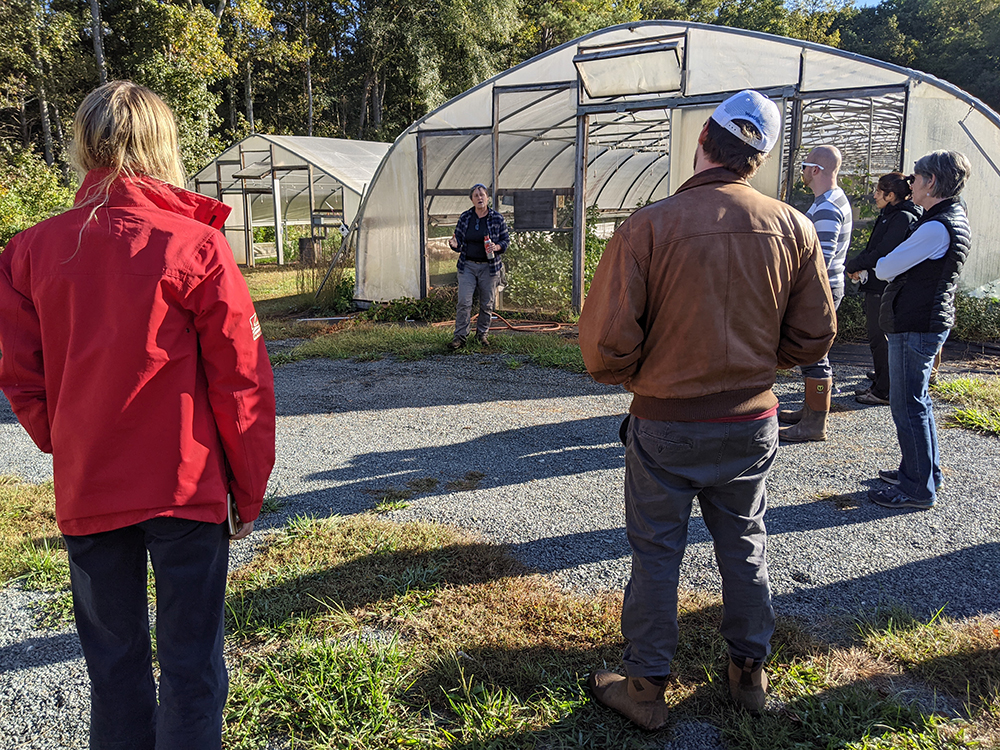
Meredith talks about her experiment growing sweetpotatoes in the high tunnel. She names all of her high tunnels after folks who have played a prominent role in building them and farming in them! Photo by Debbie Roos.
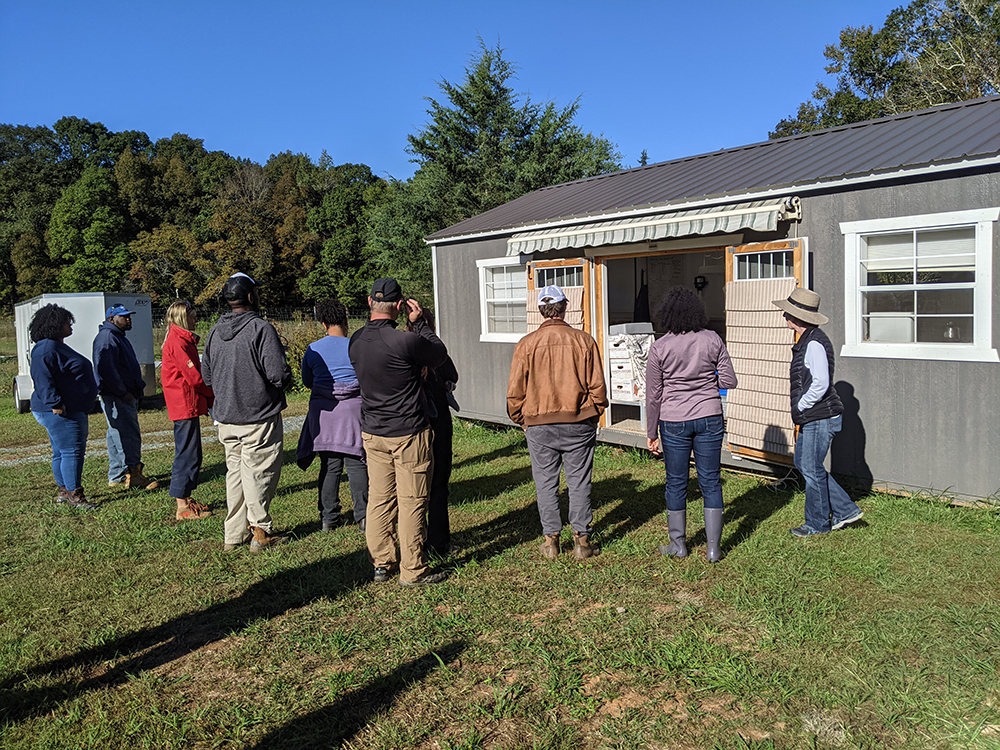
Farm School students learn about the new farm kitchen that Meredith constructed this year. The kitchen provides climate-controlled storage for crops that don’t need refrigeration like sweetpotatoes, pumpkins, and winter squash. All the greens are washed and dried in the kitchen. Photo by Debbie Roos.
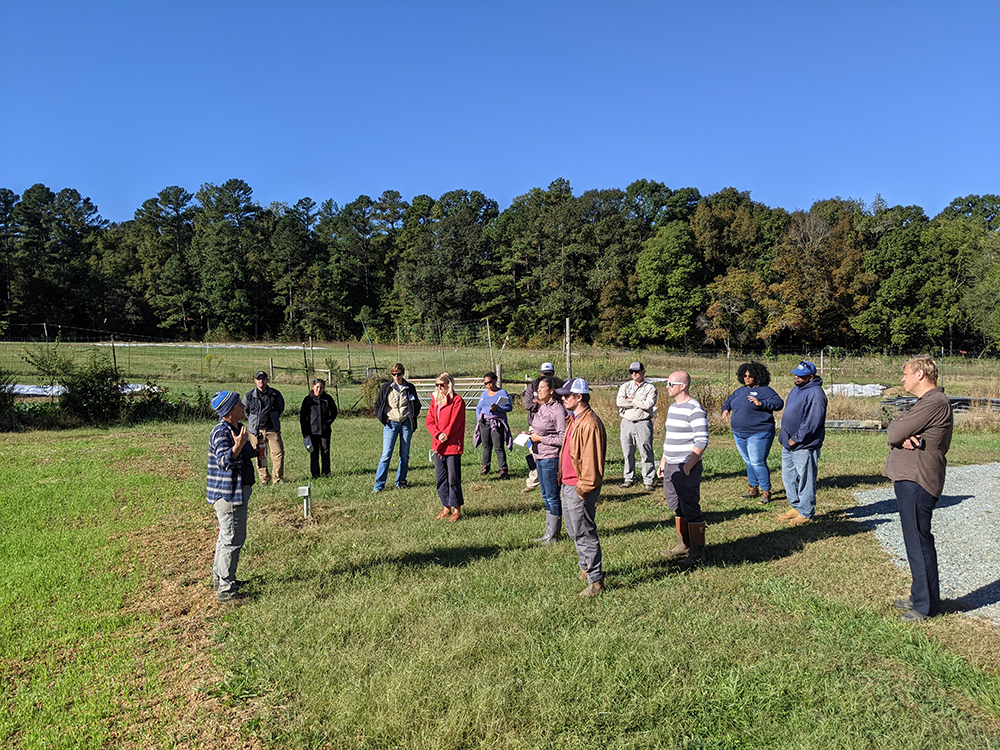
Meredith discusses her cover crop rotations (wheat and crimson clover were seeded in the field behind her) where she is about to erect a new high tunnel. All but one of her high tunnels are old tunnels reclaimed from other farmers who no longer used them. Photo by Debbie Roos.
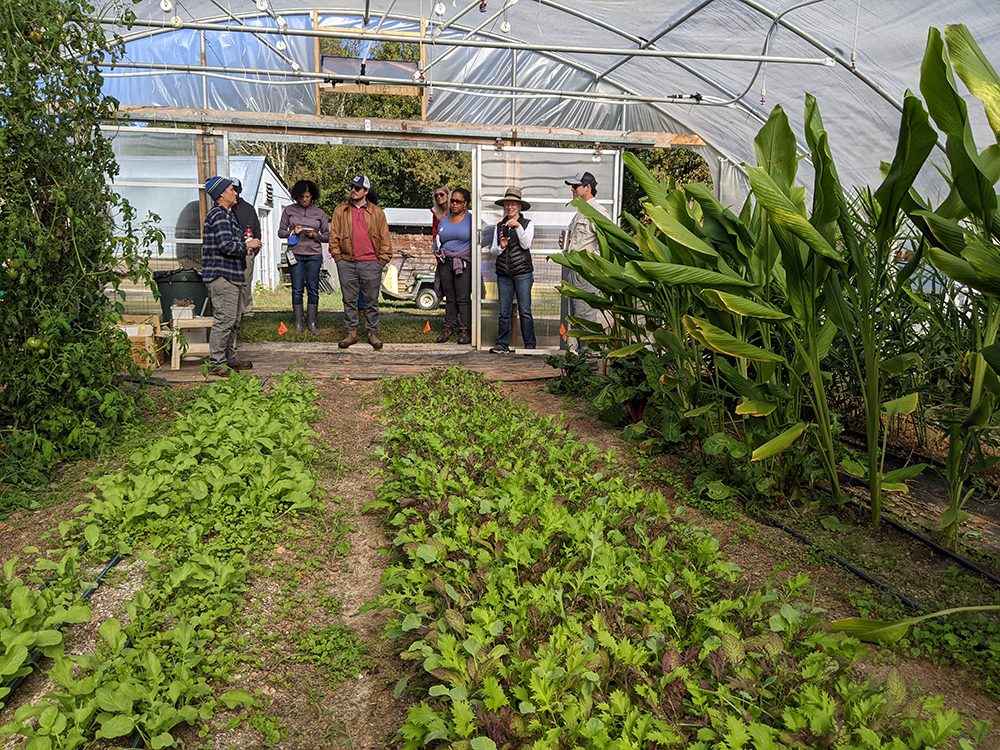
This tunnel has end-of season tomatoes, greens, ginger, and turmeric. Photo by Debbie Roos.
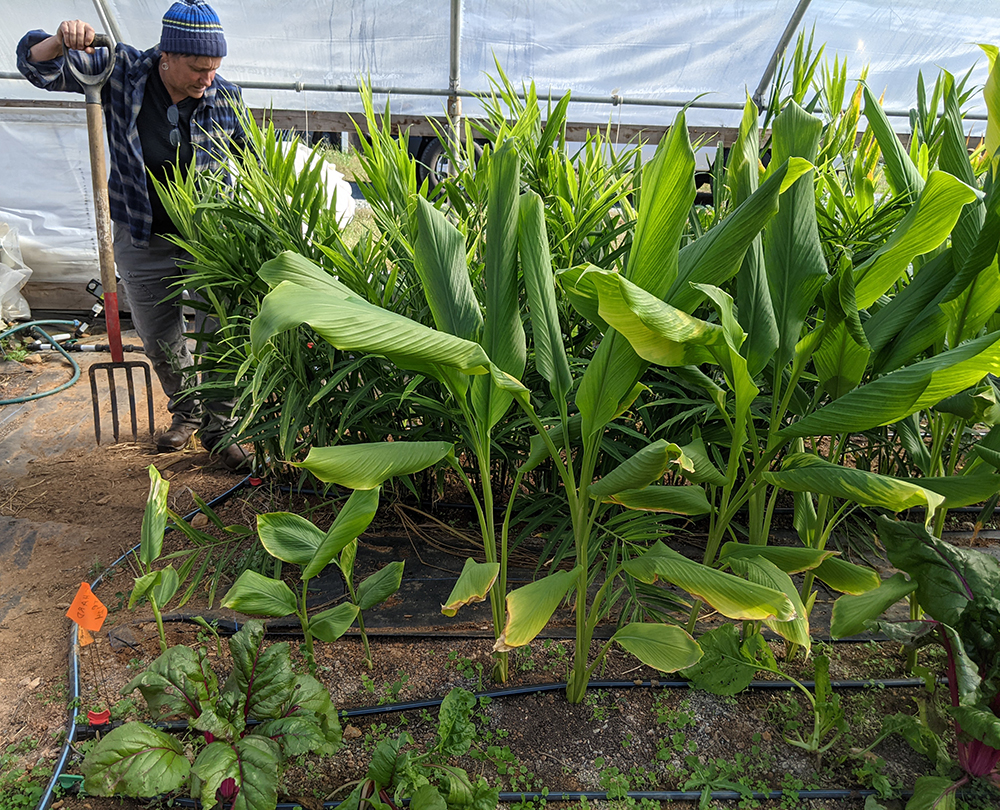
Meredith digs some of the ginger crop. Photo by Debbie Roos.
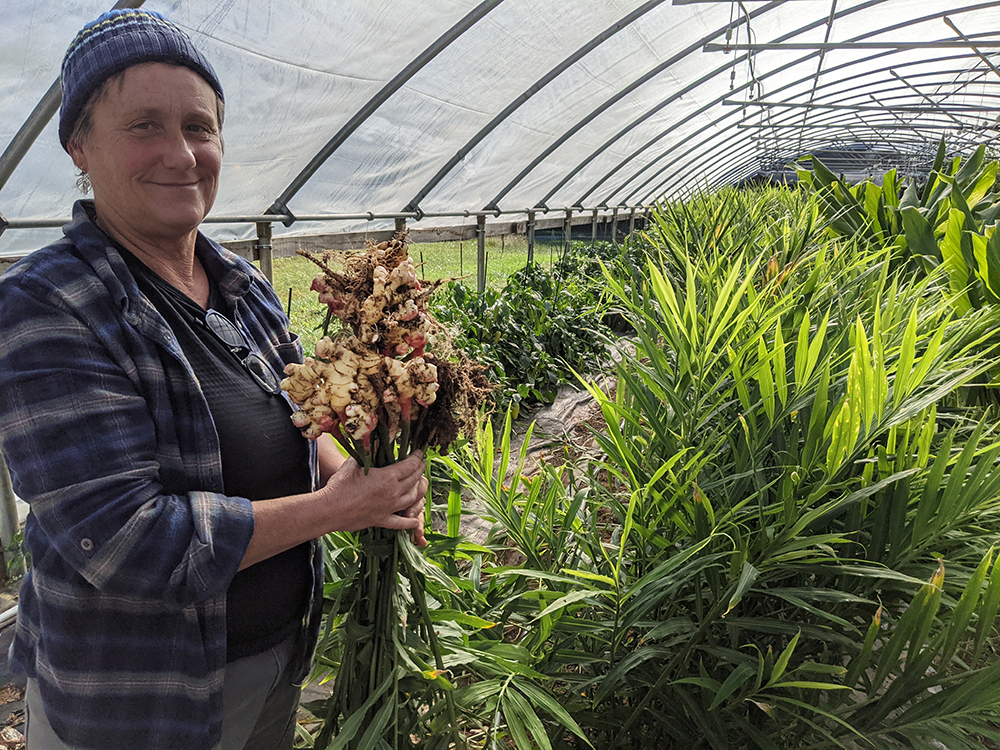
Baby ginger is a high value crop! Photo by Debbie Roos.
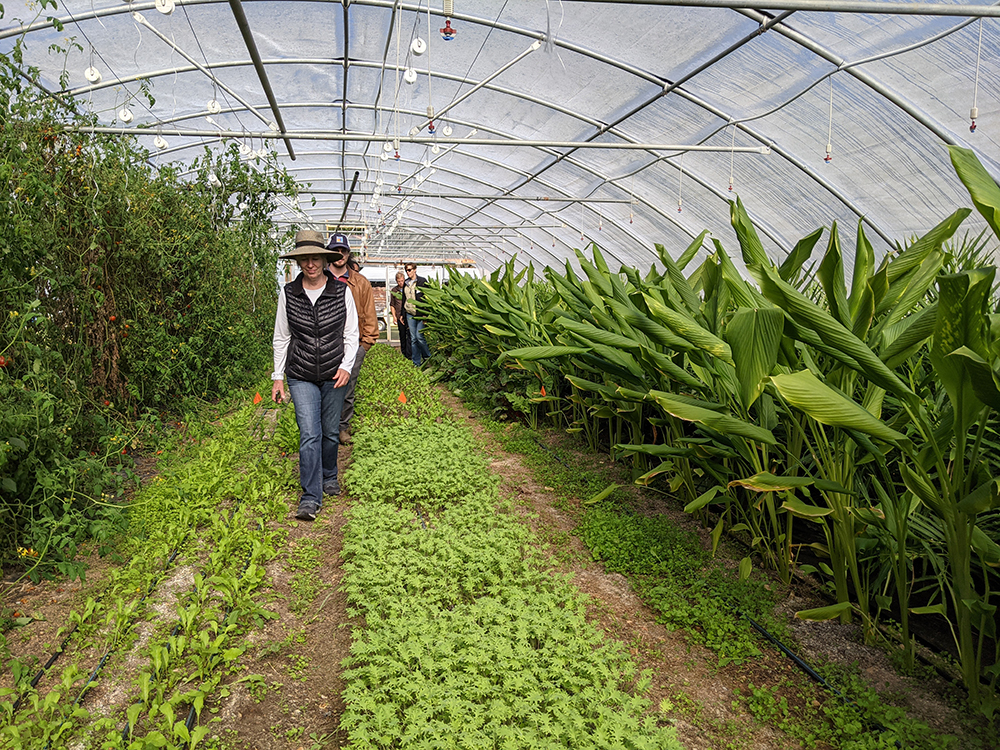
Look at that beautiful turmeric on the right! Photo by Debbie Roos.
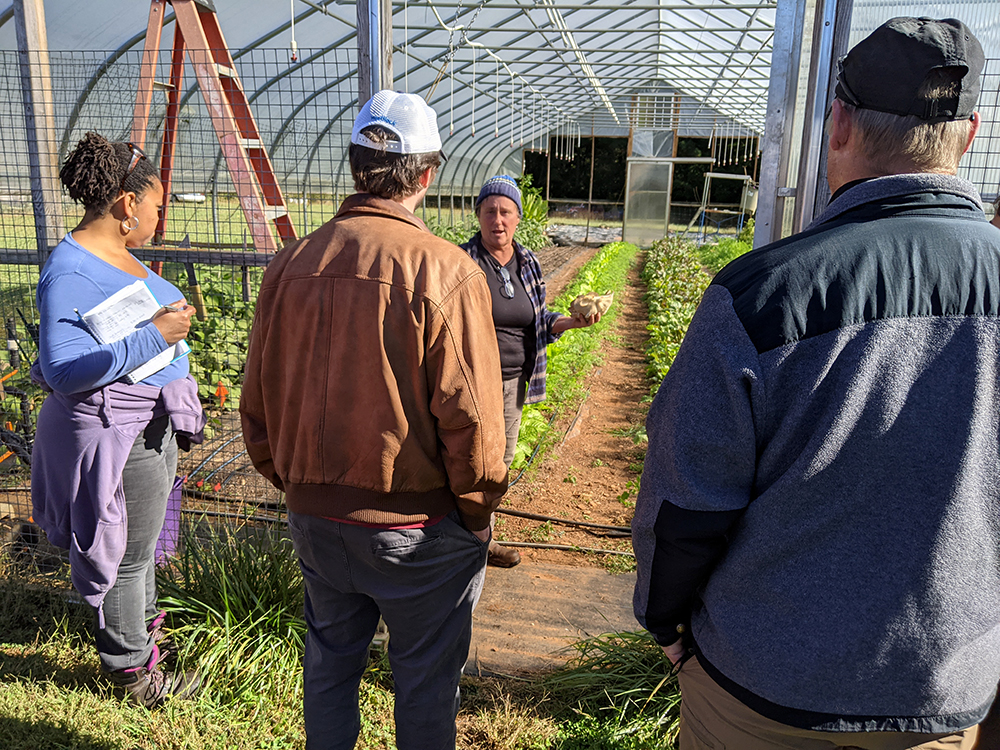
This is a different high tunnel that has overwintered turmeric plus carrots, beets, salad mix, and eggplant. Photo by Debbie Roos.
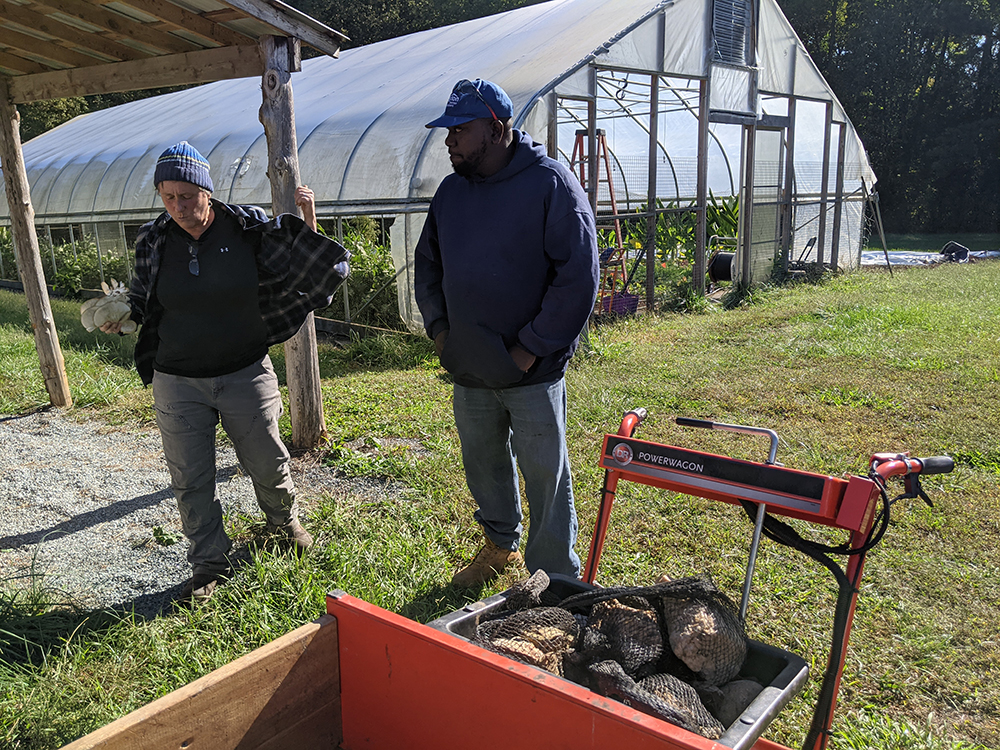
The Farm School students enjoyed asking Meredith lots of questions! Photo by Debbie Roos.
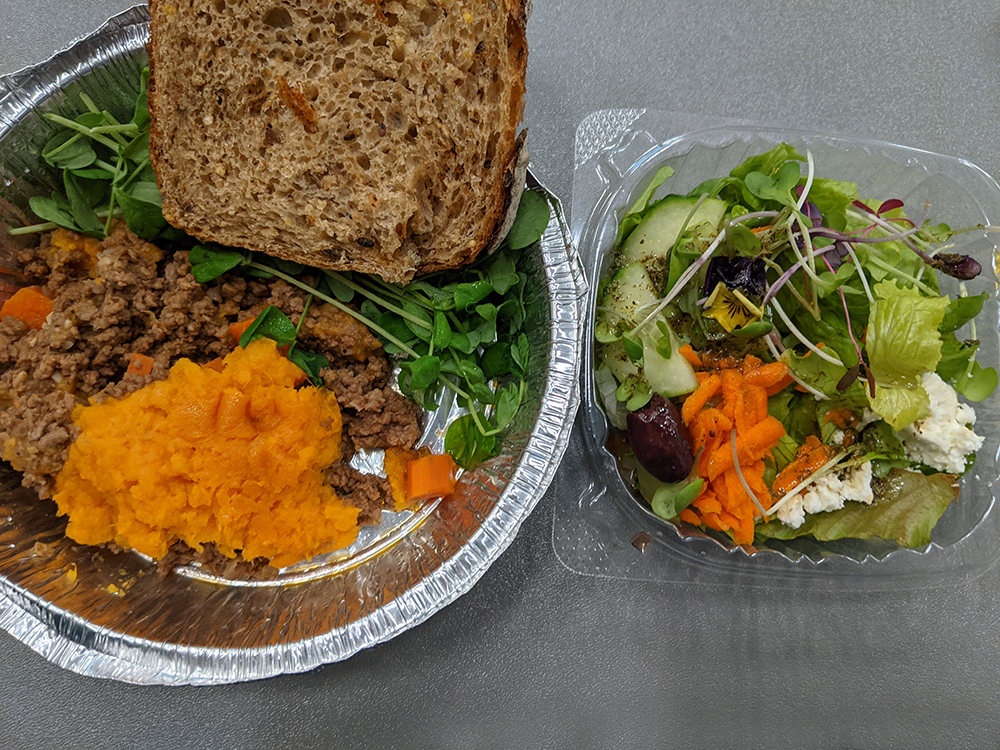
The locally sourced sweetpotato shepherd’s pie and salad from Angelina’s Kitchen was delicious! We also got bread from Chicken Bridge Bakery, one of Angelina’s famous olive oil brownies and local watermelon from Granite Springs Farm! Photo by Debbie Roos.
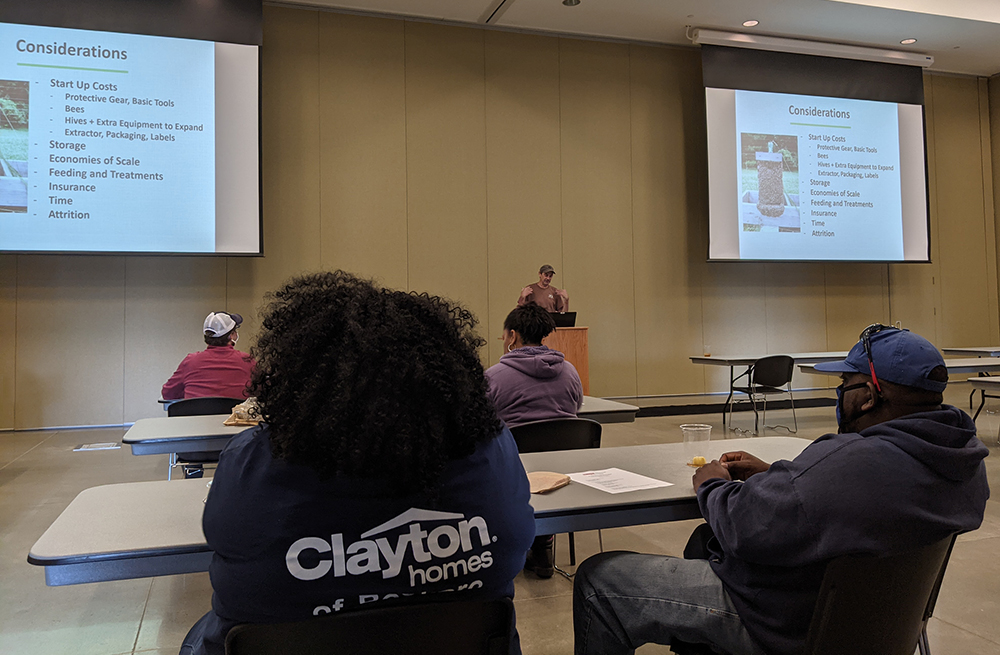
Chatham County beekeeper Jody Moore of Rocky River Bees talks about the Business of Bees during the lunch program. Photo by Debbie Roos.
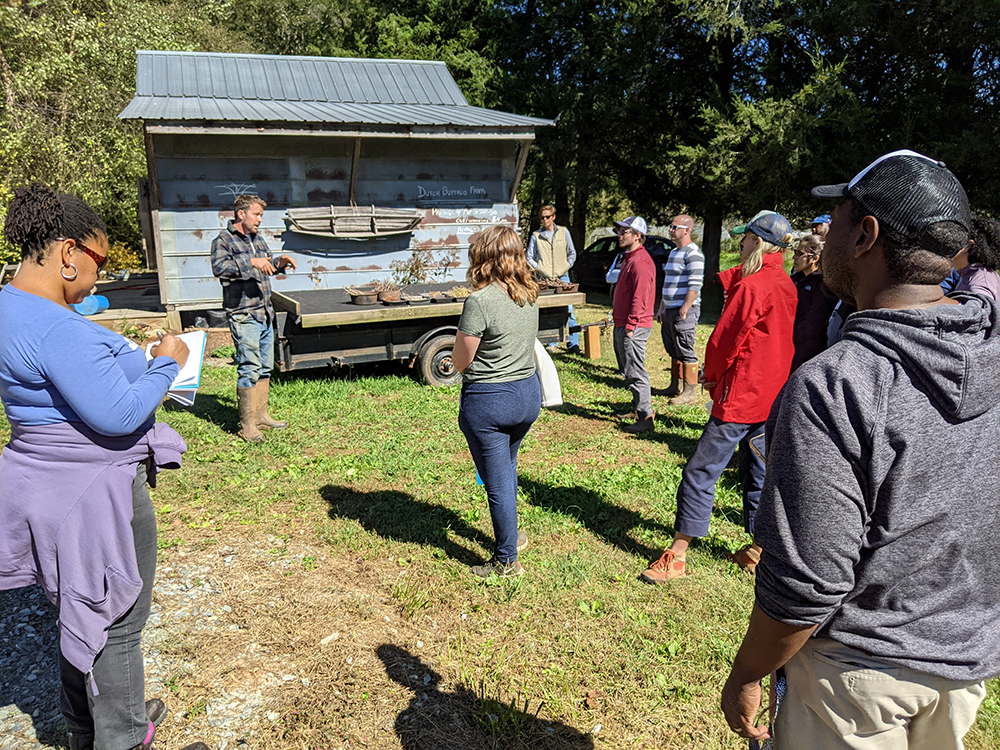
Grower Farrell Moose talks about his native plant nursery, Dutch Buffalo Farm. Photo by Debbie Roos.
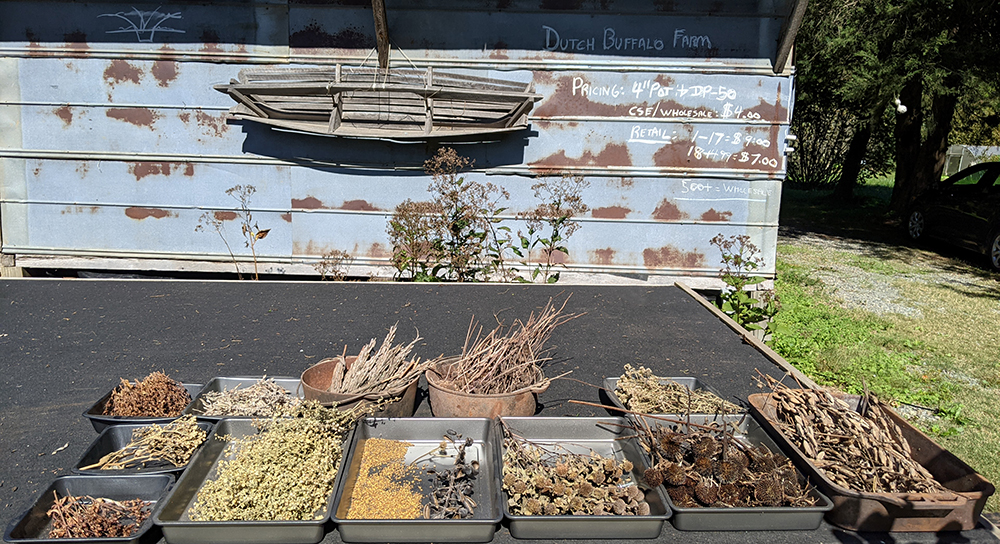
Farrell set out some of the seedheads that he wild-collects, including Carolina lupine, wild indigo, skullcap, mountain mint, coneflower, and more. Photo by Debbie Roos.
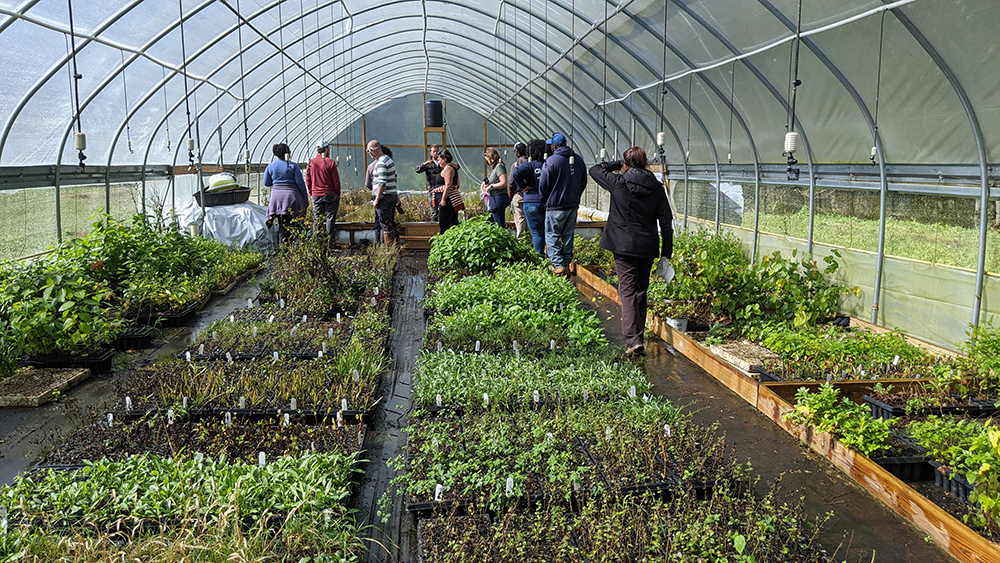
Touring the propagation greenhouse. Photo by Debbie Roos.
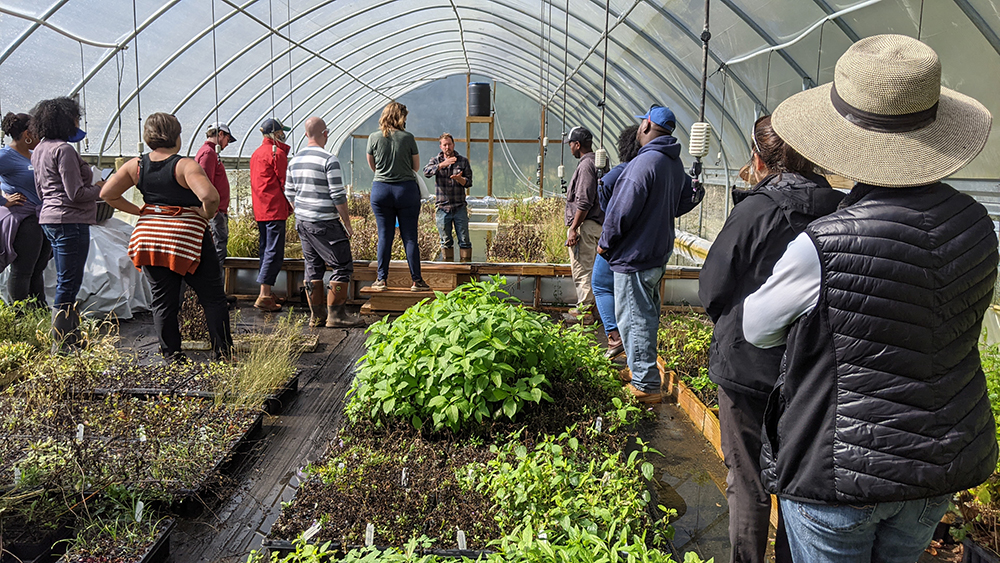
Farrell has set up a unique float propagation system. He direct seeds into styrofoam trays that float on 14,000 gallons of water. It makes it much easier to keep seedlings small at low fertility when they are floating on a column of clean water. When he sells the plant he pots it up and six weeks later it’s well-rooted and retail-ready. It’s also easier to keep plants cool in the summer because cool water from the well is pumped into the tank while sun-warmed water is pumped outside for irrigation. Photo by Debbie Roos.
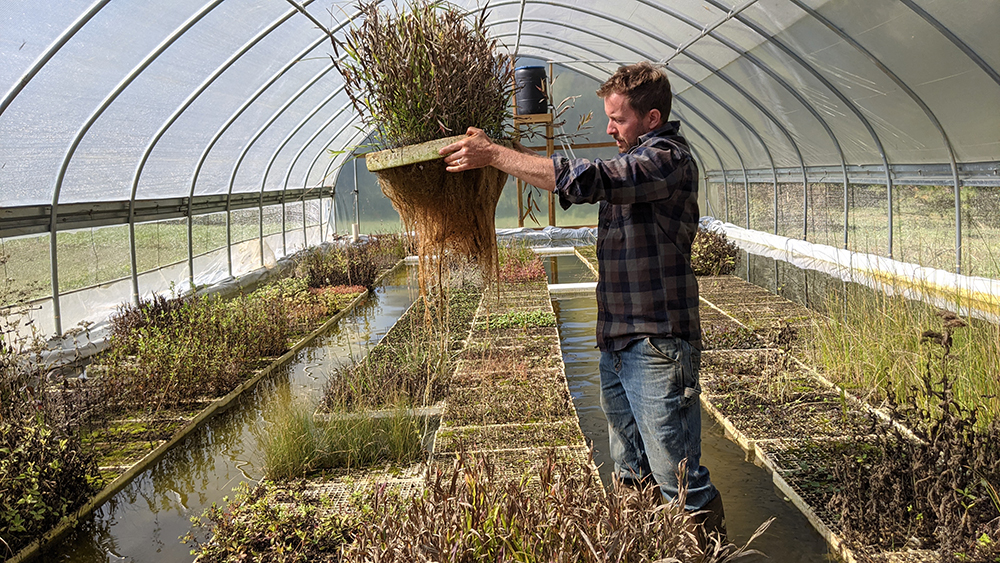
Farrell shows the roots from a tray of river oats. These roots will be pruned when the plants are potted up for sale. Photo by Debbie Roos.
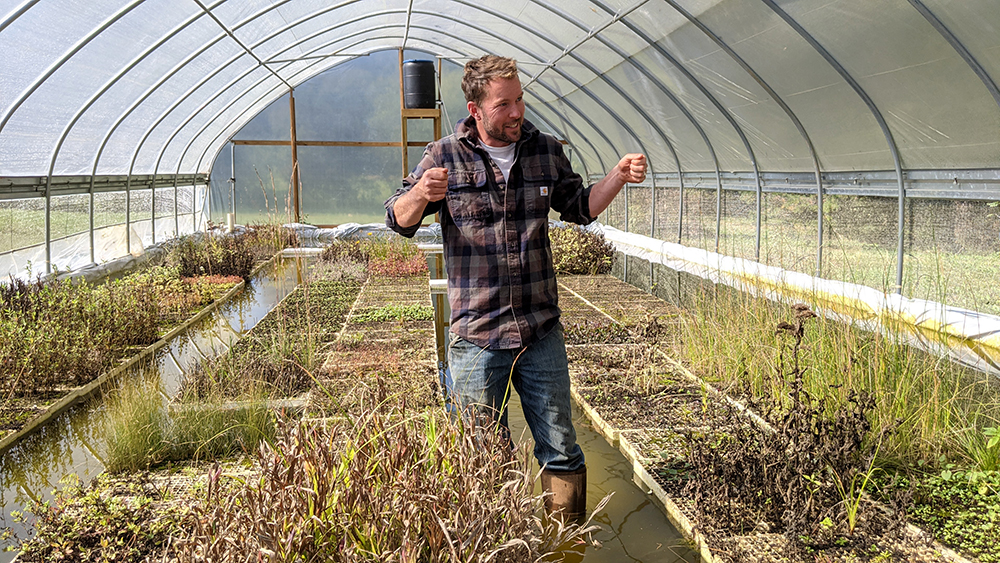
The students had lots of great questions for Farrell and he enjoyed sharing his knowledge and experience managing a nursery. Photo by Debbie Roos.


